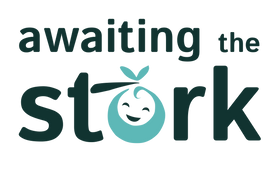Navigating infertility options from IVF to adoption

Parenthood is a cherished dream for many, but the path to achieving it can sometimes be fraught with unexpected challenges. Infertility affects millions of couples worldwide, bringing with it emotional, physical, and financial burdens. However, advancements in medical science and evolving social practices offer hope through options like In Vitro Fertilization (IVF), Intrauterine Insemination (IUI), surrogacy, and adoption. Here, we explore these pathways, shedding light on the journey to parenthood for those facing infertility.
The emotional impact of infertility
Infertility is often an emotionally draining experience. The desire to conceive naturally and the repeated disappointments month after month can lead to feelings of frustration, sadness, and isolation. It's crucial to acknowledge these emotions and seek support from loved ones or professional counselors. Understanding that infertility is a common issue can help in finding solace and strength to explore alternative paths to parenthood.
In Vitro Fertilization (IVF)
IVF is one of the most well-known assisted reproductive technologies. It involves fertilizing an egg with sperm outside the body, in a laboratory, and then implanting the embryo into the uterus. Here’s a closer look at the IVF process:
- Stimulation: Women take hormonal medications to stimulate the ovaries to produce multiple eggs.
- Egg retrieval: Eggs are collected from the ovaries using a minor surgical procedure.
- Fertilization: Collected eggs are fertilized with sperm in a lab.
- Embryo culture: Fertilized eggs are monitored as they develop into embryos.
- Transfer: A healthy embryo is transferred into the uterus.
IVF can be physically and emotionally taxing, with multiple cycles often required for success. The financial cost can also be significant, and it's essential to consider insurance coverage and other financial support options.
Intrauterine Insemination (IUI)
IUI is another assisted reproductive technology that involves placing sperm directly into the uterus around the time of ovulation. This process increases the number of sperm that reach the fallopian tubes, enhancing the chances of fertilization. Here's how IUI works:
- Ovulation monitoring: Your healthcare provider monitors your ovulation cycle to determine the best timing for the procedure.
- Sperm collection and preparation: Sperm is collected from the partner or a donor and is specially washed to concentrate the most viable sperm.
- Insemination: Using a catheter, the prepared sperm is placed directly into the uterus.
IUI is less invasive and less expensive than IVF and can be a good option for couples with unexplained infertility or mild male factor infertility. Success rates vary, and multiple cycles may be necessary.
Surrogacy
Surrogacy involves another woman carrying and giving birth to a child for a couple who cannot conceive or carry a pregnancy to term. There are two main types of surrogacy:
- Traditional surrogacy: The surrogate is artificially inseminated with the intended father's sperm, making her the genetic mother.
- Gestational surrogacy: An embryo created via IVF is implanted in the surrogate, who has no genetic link to the baby.
Surrogacy offers a valuable solution for couples facing specific medical issues or same-sex couples wishing to have a genetically related child. However, it involves complex legal, ethical, and emotional considerations. It's crucial to work with reputable agencies and legal experts to navigate these challenges effectively.
Adoption
Adoption is a wonderful way to build a family and provide a loving home to a child in need. There are several forms of adoption:
- Domestic adoption: Adopting a child from within the country.
- International adoption: Adopting a child from another country.
- Foster care adoption: Adopting a child from the foster care system.
Each type of adoption comes with its own set of regulations, procedures, and waiting periods. Prospective parents must undergo rigorous background checks, home studies, and often participate in training programs. While the adoption process can be lengthy and challenging, it ultimately leads to the rewarding experience of parenthood.
Choosing the right path
Deciding between IVF, IUI, surrogacy, and adoption is deeply personal and varies from couple to couple. Here are some factors to consider:
- Medical conditions: Certain medical conditions may make IVF or natural conception impossible.
- Financial resources: Each option has different financial implications.
- Emotional readiness: Consider the emotional demands and support systems available for each path.
- Ethical and legal concerns: Surrogacy and adoption involve legal complexities that require careful navigation.
Conclusion
The journey to parenthood when facing infertility is often challenging, but it is filled with opportunities for joy and fulfillment. IVF, IUI, surrogacy, and adoption each offer unique pathways to building a family. By understanding these options and seeking the right support, couples can find hope and success in their quest for parenthood. Remember, the end goal is a loving family, and there are many ways to achieve it, each as valid and beautiful as the next.
The content on Awaiting the Stork™ is for informational purposes only and is not intended as medical advice, diagnosis, or treatment. Always consult with a qualified physician or healthcare professional to address your unique health needs and circumstances.

